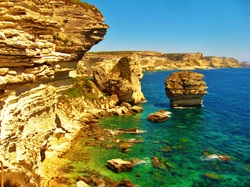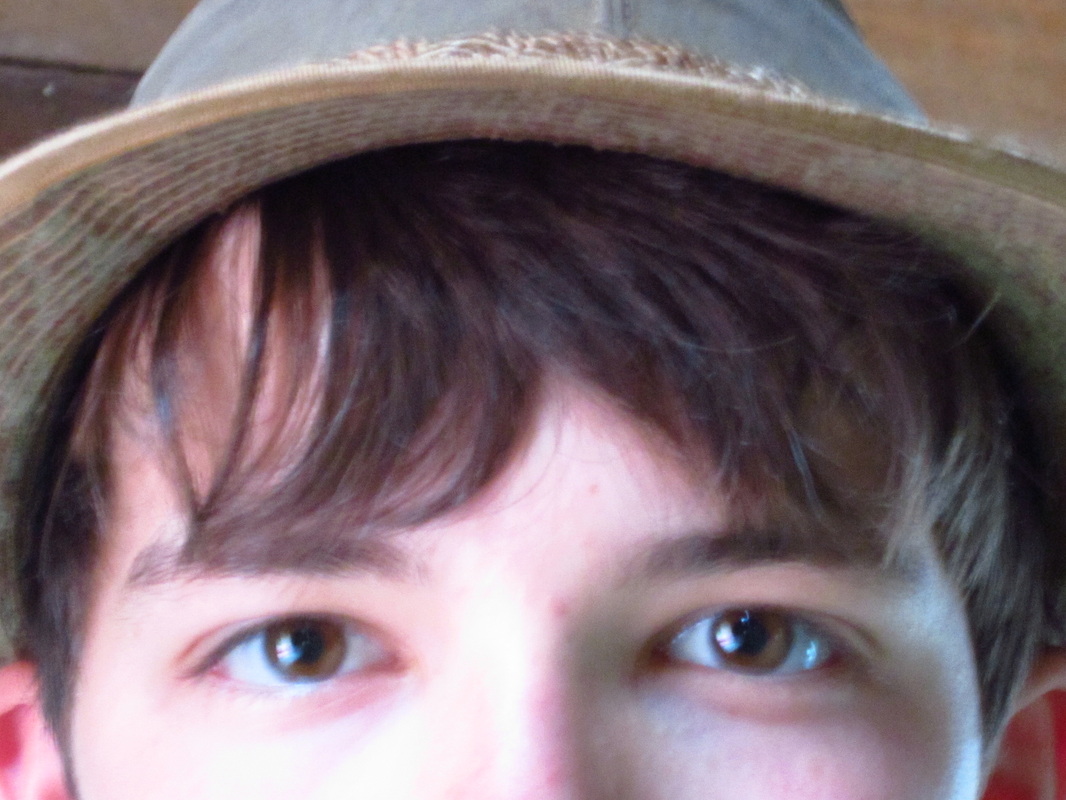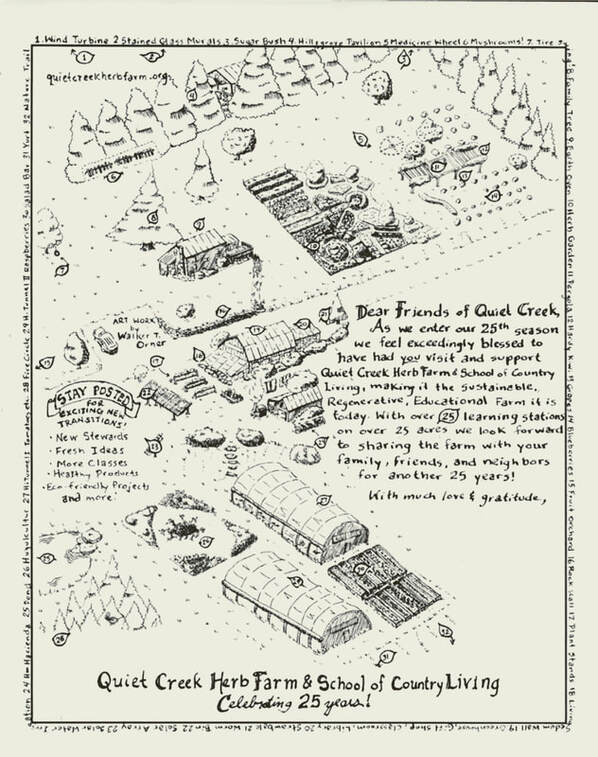
When dining over a French mushroom pasta dinner with our friend Alain, we admired his cultural diversity. He was born in Algeria and had traveled the Middle East, continental Europe, and even America. Alain speaks impeccable French, English, and Corsican plus a little Arabic which he wants to improve.
Sheepishly we confessed that few Americans speak nothing but English and have never been out of their country. The reason, he suggested, was that America is big enough so that if its residents wished to travel, there was no need to venture outside its English-speaking borders. We agreed with him, but after experiencing our international sabbatical we were so pleased that we now view the world without boundaries.
We were content; the small coastal town had much to offer, but why not gather the cultural diversity of Corsica. With generous “mad money” from a friend back home and Alain’s encouragement to see more, we rented a car to venture out on a ten-day excursion around the island of Corsica.
We began with Calvi, to the northwest, touring its citadel, the probable birth place of Christopher Columbus. Citadels were marks of the Genoese, dominators from the Italian city-state of Genoa beginning in the 12th century. They fortified Corsican cities with these castle-like settlements to protect themselves from rival powers. Later that night at the base of the citadel, we jumped off granite cliffs into the Mediterranean Sea while listening to Calvi’s best in jazz; sipping on Corsican sparkling water; and eating marinated olives, sausage, cheeses, and grapes.
The next day we visited Aleria, once Greek, but conquered as a Roman capital in the 1st century. This museum offers artifacts and outside ruins where the Greeks then Romans had settled on the eastern coast. Nearby snorkeling at Solenzara was my brother’s favorite; the gneiss outcrops displayed octopus, sea anemones and urchins.
In the center of the island, we discovered Corte, a capital proclaimed by Pascal Paoli, Corsica’s lone liberator during the 1700s. This mountainous city hosted a museum to help us understand Corsica’s geologic, ethno botanical, industrial, and religious influences.
We then headed due south to Bonifacio with its citadel perched on100 foot white limestone cliffs. Best known in this Corsican city is the iconic rock stack ironically called “Grain of Sand”. We snorkeled in the swift waters around this huge limestone formation and I climbed a portion of it jumping off twice.
Along the southwest coast, we hiked the Cauria plateau with several megalithic alignments dating to 4000 B.C., and then drove northward to Filitosa, the best-known megalithic site on the island. The most intriguing of the megaliths are statue menhirs. These tall stone pillars often have human faces with swords, daggers, and armor carved into them.
Our final destination, Ajaccio, was named the present capital by Napoleon Bonaparte. This beautiful city perched on red granite is the birthplace of France’s last emperor in 1769. We visited his Uncle Joseph Fesch’s art museum, France’s second best collection of Italian paintings, next to Paris’ Louvre. There we thought of my Grandma Marilyn and her love of art and her father and my Great-Grandfather, Napoleon Bonaparte Parmly.
On our way back to Moriani we stopped and hiked a small portion of the GR-20. Known as the Grande Rondonnee, it is the most difficult hiking trail of all Europe.
As you can see this small island in size has a tremendous amount to share. It is considered an insignificant provincial region lost in the Mediterranean Sea and being one of the twenty-two in France’s geographic collection. Corsica boasts of 6000 years of turbulent history; beautiful sedimentary, igneous and metamorphic rocks; coastline sites that excite even snorkeling experts, and changes in elevation from sea level to 8500 feet within 30 miles.
So I challenge all Americans -- defy conformity by learning a new language and culture – go visit a another country. If it is as tiny as Corsica or a huge as China, go explore.
Sheepishly we confessed that few Americans speak nothing but English and have never been out of their country. The reason, he suggested, was that America is big enough so that if its residents wished to travel, there was no need to venture outside its English-speaking borders. We agreed with him, but after experiencing our international sabbatical we were so pleased that we now view the world without boundaries.
We were content; the small coastal town had much to offer, but why not gather the cultural diversity of Corsica. With generous “mad money” from a friend back home and Alain’s encouragement to see more, we rented a car to venture out on a ten-day excursion around the island of Corsica.
We began with Calvi, to the northwest, touring its citadel, the probable birth place of Christopher Columbus. Citadels were marks of the Genoese, dominators from the Italian city-state of Genoa beginning in the 12th century. They fortified Corsican cities with these castle-like settlements to protect themselves from rival powers. Later that night at the base of the citadel, we jumped off granite cliffs into the Mediterranean Sea while listening to Calvi’s best in jazz; sipping on Corsican sparkling water; and eating marinated olives, sausage, cheeses, and grapes.
The next day we visited Aleria, once Greek, but conquered as a Roman capital in the 1st century. This museum offers artifacts and outside ruins where the Greeks then Romans had settled on the eastern coast. Nearby snorkeling at Solenzara was my brother’s favorite; the gneiss outcrops displayed octopus, sea anemones and urchins.
In the center of the island, we discovered Corte, a capital proclaimed by Pascal Paoli, Corsica’s lone liberator during the 1700s. This mountainous city hosted a museum to help us understand Corsica’s geologic, ethno botanical, industrial, and religious influences.
We then headed due south to Bonifacio with its citadel perched on100 foot white limestone cliffs. Best known in this Corsican city is the iconic rock stack ironically called “Grain of Sand”. We snorkeled in the swift waters around this huge limestone formation and I climbed a portion of it jumping off twice.
Along the southwest coast, we hiked the Cauria plateau with several megalithic alignments dating to 4000 B.C., and then drove northward to Filitosa, the best-known megalithic site on the island. The most intriguing of the megaliths are statue menhirs. These tall stone pillars often have human faces with swords, daggers, and armor carved into them.
Our final destination, Ajaccio, was named the present capital by Napoleon Bonaparte. This beautiful city perched on red granite is the birthplace of France’s last emperor in 1769. We visited his Uncle Joseph Fesch’s art museum, France’s second best collection of Italian paintings, next to Paris’ Louvre. There we thought of my Grandma Marilyn and her love of art and her father and my Great-Grandfather, Napoleon Bonaparte Parmly.
On our way back to Moriani we stopped and hiked a small portion of the GR-20. Known as the Grande Rondonnee, it is the most difficult hiking trail of all Europe.
As you can see this small island in size has a tremendous amount to share. It is considered an insignificant provincial region lost in the Mediterranean Sea and being one of the twenty-two in France’s geographic collection. Corsica boasts of 6000 years of turbulent history; beautiful sedimentary, igneous and metamorphic rocks; coastline sites that excite even snorkeling experts, and changes in elevation from sea level to 8500 feet within 30 miles.
So I challenge all Americans -- defy conformity by learning a new language and culture – go visit a another country. If it is as tiny as Corsica or a huge as China, go explore.

 RSS Feed
RSS Feed
